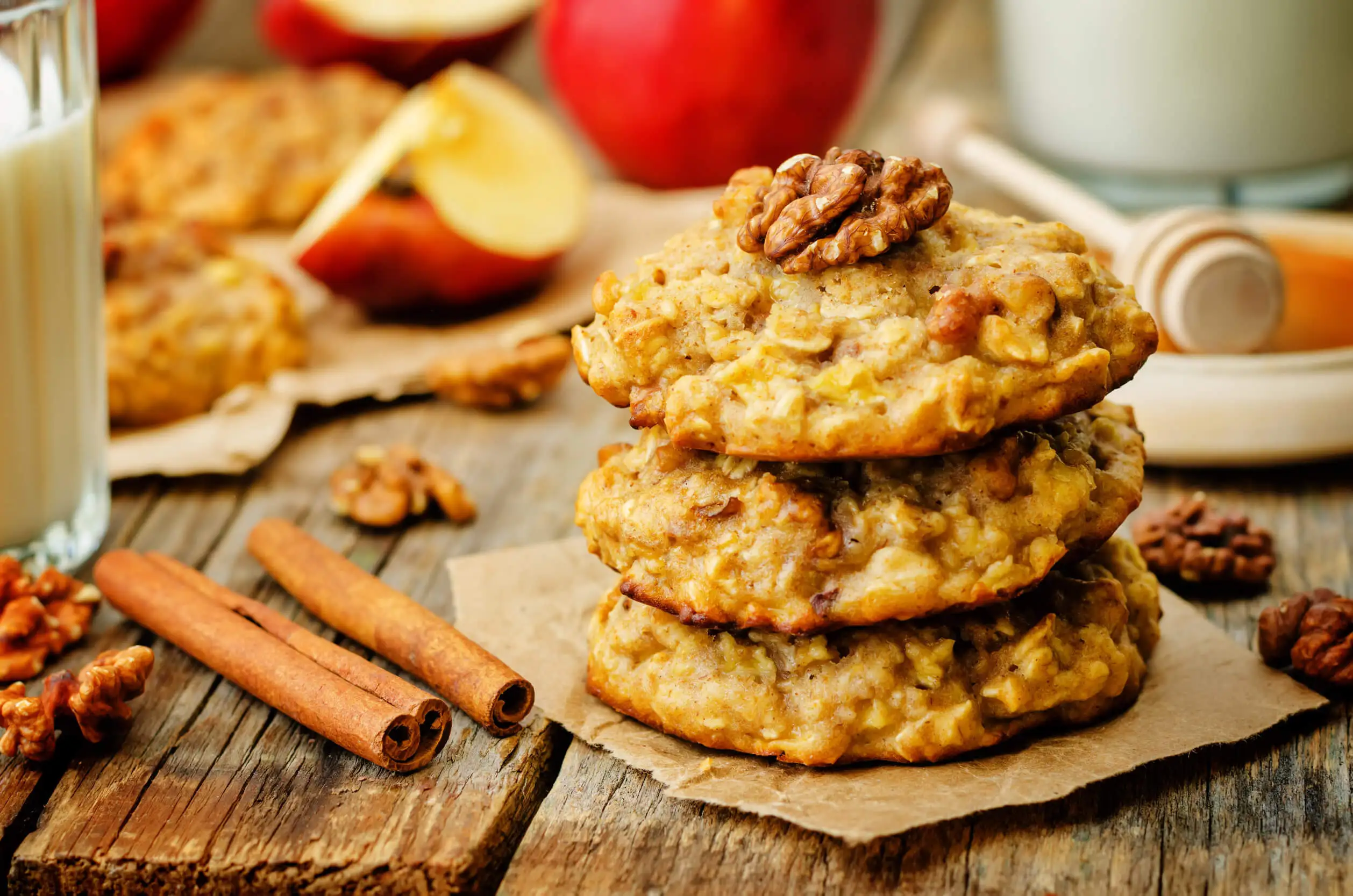4 Tips to Eat the Right Breakfast Before Going Running


Written and verified by the nutritionist Maria Patricia Pinero Corredor
Breakfast is one of the most important meals and is related to a higher intake of nutrients throughout the day. For this reason, if you’re a jogger or runner, then you’ll need some tips to know the right breakfast before going running.
What should we take into account regarding what to have for breakfast before going running? The food group and the variety of foods is essential in order to get enough energy and stave off fatigue.
Do you try to practice physical activity and have a healthy diet? In that case, in this article, you’ll find the best tips to help to eat the best breakfast before going running, a breakfast that will help you obtain the energy and strength you need for a better performance.
The importance of breakfast
Breakfast, as the name implies, breaks your overnight “fast” which will usually be between 10 and 12 hours. In addition, it has long been known that, when you wake up, the levels of glycogen, a form of sugar storage in the muscles and liver, decrease.
Before intense exercise, you need to give your body energy to provide strength and endurance. For example, when you run without first having breakfast, you’ll lose the ability to run with intensity and for a prolonged period of time.
On the other hand, by not ingesting food and maintaining the overnight fast, you’ll burn fewer calories, as your body will enter a state of energy saving.
The lack of blood sugar can cause dizziness, blurred vision, and fatigue.
Eating carbohydrates before going for a run can alleviate this problem, as it favors the increase of blood sugar levels, the muscular utilization of this energy source, and the recovery of glycogen. Eating before a run will increase speed and endurance.
Let’s take a look at other advantages of eating a good breakfast before physical exercise.
Contributes to body weight control
Some studies show that skipping breakfast can increase the risk of obesity by 1.5 times. A relationship has also been observed between skipping breakfast with higher body weight, abdominal obesity, and higher body mass index (BMI).
Skipping breakfast is also associated with increased cardiovascular and metabolic risk. Eating breakfast is linked to better weight control in children, adolescents, and adults.
In a study of Dutch adolescents, it was observed that boys who ate breakfast more lost more weight than those who didn’t.

Improves cognitive function
Although more studies are needed, breakfast may modulate cognitive function by improving overall nutritional status, and modifying neurotransmitter levels, insulin, and blood sugar levels. These factors play a role in the efficiency of mental processes.
Improves the overall quality of the diet
Breakfast improves nutrient intake and the overall quality of the diet. It allows us to better cover energy expenditure, and provides carbohydrates, fiber, folic acid, calcium, iron, and iodine. For many countries, this meal is the main source of dairy products.
The best tips to have the right breakfast before going running
Here are some tips to give you a more energizing breakfast before going for a run. And, of course, your performance will be higher.
1. The ideal time to go running
It is important to give your stomach enough time to finish digestion before starting to run. Some experts consider that breakfast should be about 2 hours before exercise.
This will give you an extra energy intake in the final phase of the activity. In addition, it provides amino acids that will help prevent the muscle protein catabolism that occurs during a run.
If breakfast is more of a snack, such as nuts, fresh fruit, a smoothie, or yogurt, then you can start your run 30 to 60 minutes later.
Another great article: 11 Exercises to Improve Your Running Technique
2. What you should eat
As evidenced by some specialists, the best nutrient of all for training is carbohydrates. These are stored in the muscle and liver in the form of glycogen to provide the body with energy.
The body only stores a small amount of carbohydrates, so you should always replenish your reserves. For a more efficient race, a complete and nutritious breakfast should consider the following:
- Proteins of high biological value, such as eggs, dairy products, and grains, combined with cereals.
- Simple and complex carbohydrates accompanied by fiber, which facilitate slow absorption and maintain adequate blood sugar levels. Among these, we find whole fruits, cereals and their integral derivatives, pseudocereals such as quinoa and amaranth. Honey is one of the best sweeteners.
- Reduce as much as possible the consumption of white or brown sugar, including sugar added in juices or commercial shakes.
- Include healthy fats, such as olive oil, avocado, and non-hydrogenated soft margarines.
Over time, you’ll be able to identify which foods suit you best and which give you more energy to run for longer periods and longer distances. Each breakfast menu should be personalized, according to the runner’s needs.
Including products from different groups helps with variety and brings more nutrients to your breakfast. Therefore, one of the breakfast quality criteria is the number of different types of food that are part of the menu.
3. What not to eat
Foods that can cause gastrointestinal problems, such as flatulence, diarrhea, or bloating, should be avoided. That’s why you should limit the consumption of products with excess fat, spicy, dry legumes, alcohol, and caffeinated beverages.
4. Hydration
Before running, it’s important for the body to be hydrated. It’s suggested to eat foods with high humidity, vitamins, and minerals, such as fruits and vegetables, milk, and other proteins, accompanied by enough water.
Some ideas to give you the right breakfast before going running
Here’s a short list of breakfasts, whose combination of foods covers the requirement of balance, variety and quality. This will help you to have the right breakfast before going running. With the advice of a nutrition professional, you can design more options.
Read also: 7 Great Breakfasts to Lower Your High Triglycerides
Sweet breakfasts
- Oatmeal cookies and unsweetened nuts.
- Pumpkin and oat pancakes.
- Smoothies of strawberries, cambur, fresh cheese and oatmeal.
- Coconut and sunflower seed cookies.
- Yogurt and oatmeal cookies without sugar.
- Couscous with milk and fruit.
- A bowl of low-fat yogurt with whole grain cereals and two pieces of fruit.

Savory breakfasts
- Savory chickpea pancakes with fresh cheese, avocado, and orange juice.
- Whole wheat toast with avocado, tuna, and mango.
- Egg and spinach omelets with whole wheat rye bread.
- Tuna with peppers and cilantro, served with citrus juice.
- Whole wheat tortilla stuffed with turkey breast and tomato and cucumber juice.
- Baked mushroom and olive sandwich with carrot and apple juice.
Remember to accompany each breakfast with enough water, green tea, or fruit juice.
What you should remember before going for a morning run
The first thing you should think about is eating without overeating to get the energy you need for your morning jog. Consult with a nutritionist to help you plan your menu.
In general, slow-absorption carbohydrates are recommended, such as those contained in whole-grain bread or crackers, whole fruits, or unstrained juices. This way you take advantage of the fiber.
Protein should be provided through dairy products, such as yogurt or cheese. Poached eggs, ham, or turkey breast are also good.
For a little more satiety, incorporate healthy fats and take these tips on how to eat the right breakfast before you go running. Nuts and olive oil are also an excellent choice.
All cited sources were thoroughly reviewed by our team to ensure their quality, reliability, currency, and validity. The bibliography of this article was considered reliable and of academic or scientific accuracy.
- EDWARD F. COYLE, ANDREW R. COGGAN, MAR1 K. HEMMERT, AND JOHN L. IVY. Muscle glycogen utilization during prolonged strenuous exercise when fed carbohydrate. 1986, Disponible en: https://journals.physiology.org/doi/pdf/10.1152/jappl.1986.61.1.165
- Haff, G.G., M.J. Lehmkuhl, L.B. McCoy, and M.H. Stone. Carbohydrate supplementation and resistance training. J. Strength Cond. Res. 17(1):187– 196. 2003. Disponible en: https://paulogentil.com/pdf/H69.pdf
- Navia, B., López-Sobaler, A. M., Villalobos, T., Aranceta-Bartrina, J., Gil, Á., González-Gross, M., Serra-Majem, L., Varela-Moreiras, G., & Ortega, R. M. (2017). Breakfast habits and differences regarding abdominal obesity in a cross-sectional study in Spanish adults: The ANIBES study. PloS one, 12(11), e0188828. https://doi.org/10.1371/journal.pone.0188828
- Uzhova I, Fuster V, Fernández-Ortiz A, et al. The Importance of Breakfast in Atherosclerosis Disease: Insights From the PESA Study. Journal of the American College of Cardiology. 2017 Oct;70(15):1833-1842. DOI: 10.1016/j.jacc.2017.08.027. PMID: 28982495. Disponible en: https://www.jacc.org/doi/abs/10.1016/j.jacc.2017.08.027
- van Nassau, Femke & Singh, Amika & Cerin, Ester & Salmon, Jo & Mechelen, Willem & Brug, Johannes & Chinapaw, Mai. (2014). The Dutch Obesity Intervention in Teenagers (DOiT) cluster controlled implementation trial: Intervention effects and mediators and moderators of adiposity and energy balance-related behaviours. International Journal of Behavioral Nutrition and Physical Activity. 11. 10.1186/s12966-014-0158-0. Disponible en: https://www.researchgate.net/publication/273288696_The_Dutch_Obesity_Intervention_in_Teenagers_DOiT_cluster_controlled_implementation_trial_Intervention_effects_and_mediators_and_moderators_of_adiposity_and_energy_balance-related_behaviours
- Adolphus, K., Lawton, C. L., Champ, C. L., & Dye, L. (2016). The Effects of Breakfast and Breakfast Composition on Cognition in Children and Adolescents: A Systematic Review. Advances in nutrition (Bethesda, Md.), 7(3), 590S–612S. https://doi.org/10.3945/an.115.010256
- Olza, J., Aranceta-Bartrina, J., González-Gross, M., Ortega, R. M., Serra-Majem, L., Varela-Moreiras, G., & Gil, Á. (2017). Reported Dietary Intake, Disparity between the Reported Consumption and the Level Needed for Adequacy and Food Sources of Calcium, Phosphorus, Magnesium and Vitamin D in the Spanish Population: Findings from the ANIBES Study. Nutrients, 9(2), 168. https://doi.org/10.3390/nu9020168
- Jeukendrup AE, Jentjens R. Oxidarion of carbohydrate feedings during prolonged exercise. Current thoughts guidelines and directions for future research. Sports Med. 2000: 29(6): 407-424. Disponible en: https://www.researchgate.net/publication/12447721_Oxidation_of_carbohydrate_feedings_during_prolonged_exercise_Current_thoughts_guidelines_and_directions_for_future_research
- Carol E O’Neil, Carol Byrd-Bredbenner, Dayle Hayes, Laura Jana, Sylvia E Klinger, Susan Stephenson-Martin. The role of breakfast in health: definition and criteria for a quality breakfast. J Acad Nutr Diet. 2014 Dec;114(12 Suppl):S8-S26. doi: 10.1016/j.jand.2014.08.022. Epub 2014 Nov 24.
This text is provided for informational purposes only and does not replace consultation with a professional. If in doubt, consult your specialist.








